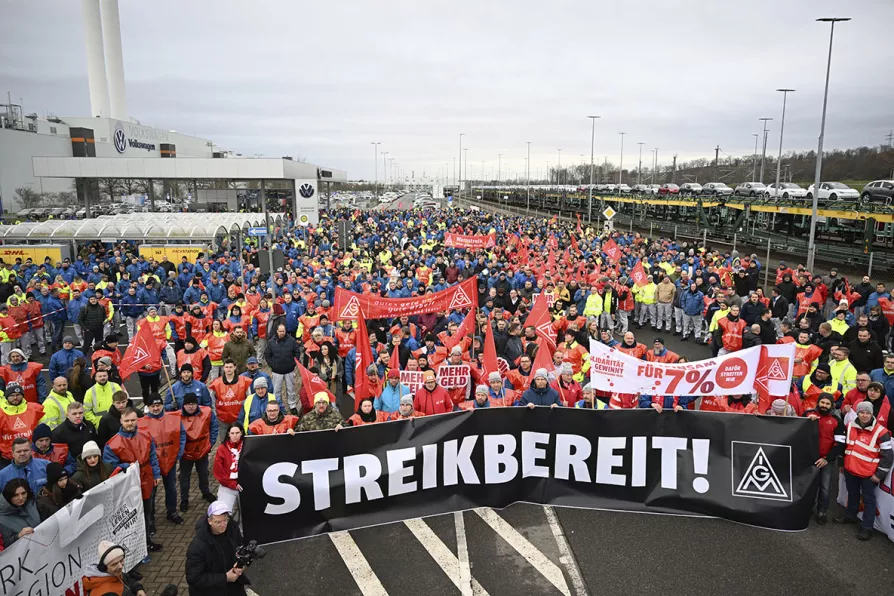German car workers launch rolling strikes against Volkswagen job cuts and closures

 Volkswagen workers march holding a sign with writing reading in German "Ready to Strike!" on the first day of a nationwide warning Volkswagen workers' strike, in Zwickau, Germany, December 2, 2024
[Hendrik Schmidt/dpa via AP]
Volkswagen workers march holding a sign with writing reading in German "Ready to Strike!" on the first day of a nationwide warning Volkswagen workers' strike, in Zwickau, Germany, December 2, 2024
[Hendrik Schmidt/dpa via AP]
WORKERS at nine Volkswagen plants in Germany launched a series of rolling two-hour strikes today in resistance to a programme of pay cuts and factory closures.
Volkswagen says the swingeing cuts are necessary to cope with a slack European car market.
The so-called warning strikes included the company’s base plant at Wolfsburg, where workers were set to rally against a cost-cutting drive by the car-maker’s management in which they face the threat of the company’s first plant closures in its home country.
Similar stories

TONY BURKE reports on growing industrial unrest as Volkswagen plans its first German plant closures in 90 years amid its struggles to gain a place in the growing EV market, putting it on a collision course with IG Metall













